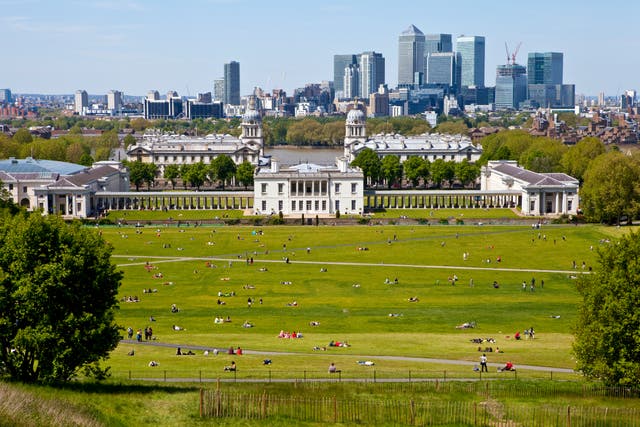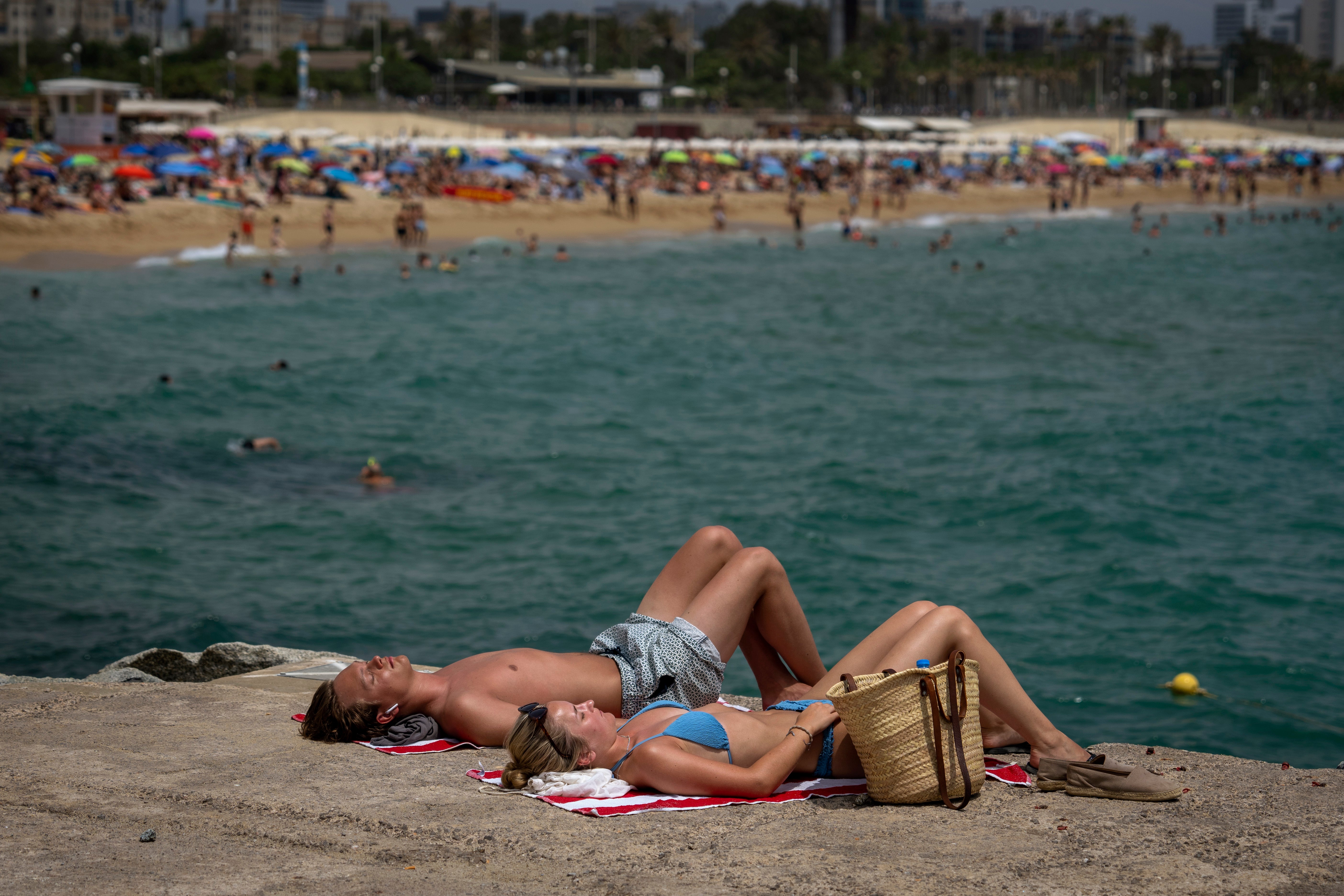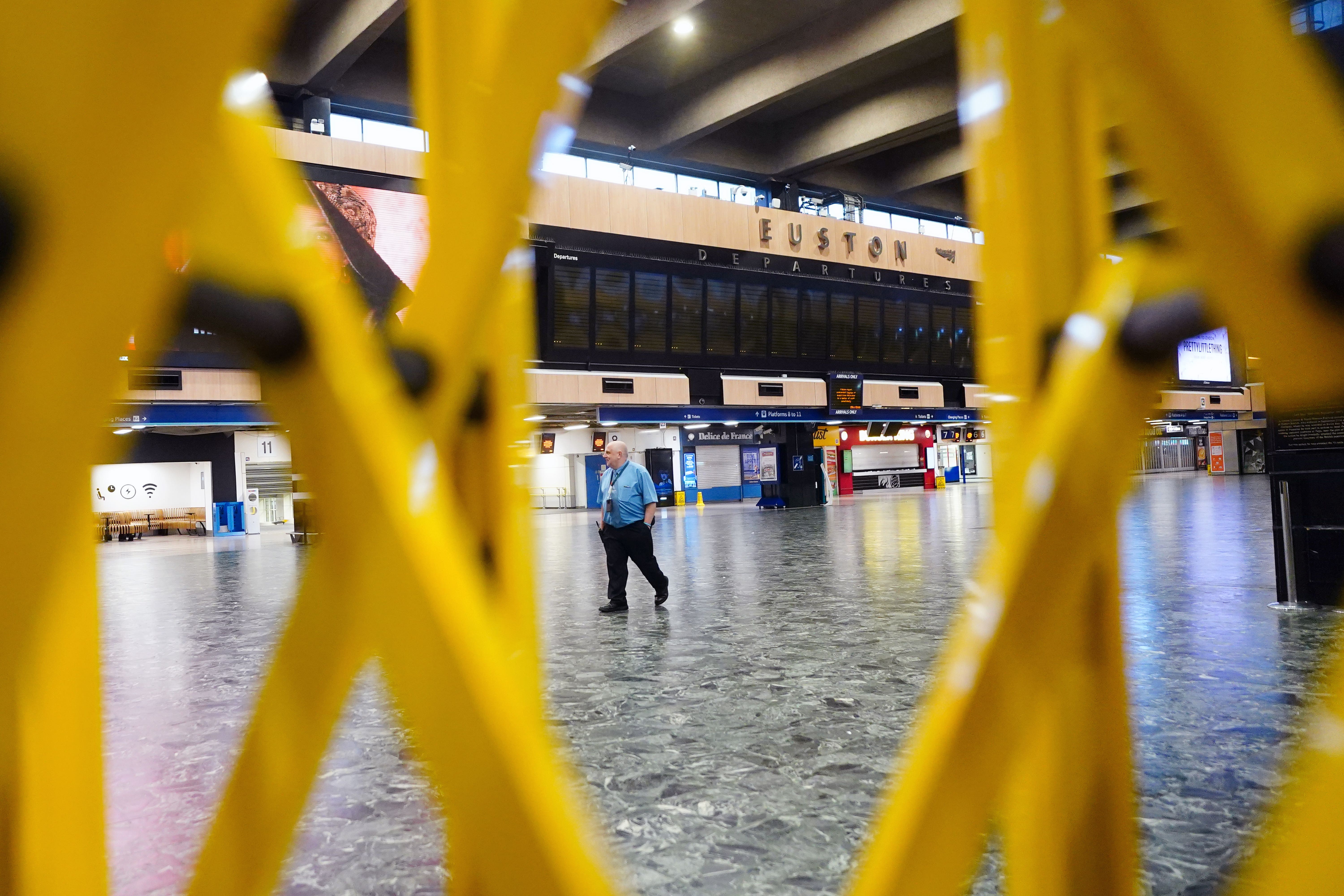Can you find me a London hotel room for £120 or less?
Simon Calder answers your questions on trips to Theatreland, breaks in Spain and Corfu, and rail strikes


Q Can you help me? I need a London hotel for a visit to the theatre in May. I normally stay at the Ibis Earls Court but their prices have doubled to £195. I’ve searched on booking.com but can’t find anything decent under £100 and the majority are more than £200. I am happy with a three-star property and don’t really want to pay more than £120.
Gordon W
A London hoteliers of my acquaintance can hardly believe how strongly travel has bounced back after the coronavirus pandemic. Demand for decent city centre properties has soared. Rates at the cluster of Premier Inns in London SE1, stretching from Waterloo to London Bridge, are typically £180 even for a Tuesday night in mid-March – when £120 would be the kind of price I would have expected before Covid. Therefore I propose you choose a Premier Inn (the epitome of three-star properties) in an easy-to-access location by public transport for the West End. The cheapest I could find was just under £100 at the Hogarth Roundabout in west London – a location I would not wish upon anyone. But looking in the opposite direction, I found the Greenwich Premier Inn at exactly £120. The Premier Inn boasts its location is “minutes from the Royal Observatory, Cutty Sark and the panoramic views from Greenwich Park”. Don’t assume you are in the centre of Greenwich: it’s a brisk walk of 15 or 20 minutes to these highlights.
However, west Greenwich makes a good base. There are multiple public transport options close by including three rail stations (Greenwich, Deptford and New Cross) linked to Charing Cross station, which itself is just a five-minute walk from Leicester Square at the heart of Theatreland. These prices are all snapshots, and the exact figures will depend on when you are travelling and how far in advance you are prepared to commit. But with a strong financial incentive to stay outside the heart of the capital, you may as well make a virtue of necessity and get to know more of London. I can promise you Greenwich is a more engaging area than Earl’s Court.

Q My wife and I and our two young children are booked for a week in Corfu at the start of May – any recommendations?
Rory N
A The second-largest of the Ionian Islands (after Kefalonia) is an excellent choice of location as the Mediterranean wakes up for the summer. The temperatures and crowds will be mild, making life much more comfortable for your youngsters. I imagine most of your time will be spent in and around your chosen resort. But Corfu Town is well worth a visit (which you can make by bus from all over the island).
Two Venetian fortresses protect the harbour; the island was ruled by Venice for four centuries and gives Corfu Town an Italian feel. Explore the original Campiello quarter, with tottering houses and cobbled squares; the equally picturesque Jewish quarter; and the huge Spianada (Esplanade), a bustling main square edged with gently crumbling Venetian palaces. The northern part is occupied by a rather forlorn cricket pitch, brown and scraggy.
Wander south to Mon Repos, an elegant villa built in 1831 for the British High Commissioner. After the old empire left, the Greeks took it over; Prince Philip was born here in 1921. Today it houses the Palaiopolis Museum.
If you decide to rent a car for a day or two, aim for Mount Pantokrator – which qualifies as a Munro, being over 3,000 feet high, yet also accessible by car – with a monastery and cafe at the summit. Nearby, Old Perithia was an abandoned village that is gradually coming back to life thanks to tourism. To the south, Potamia is a pretty place.
For an international journey, you could take the 35-minute trip by Flying Dolphin (an ageing hydrofoil) from Corfu Town to the Albanian fishing port of Sarande. The day-trip fare is €38 for each adult and €8 for each infant, meaning a total of €92 (£81) for a fascinating day out.

Q I’m booking my annual return trip to Spain at the end of July. Prices are coming up around £440. Will this price come down at any point during the year or are we best to book now with a 15 per cent discount? The deadline is 24 hours.
Alex N
A I am not sure which route you are looking at, nor on which airline. But to get an impression of how the market is behaving this summer, I have made test bookings on Manchester-Alicante on easyJet, travelling out on Saturday 22 July – the first day of the school holidays for many people – and returning a week later.
On the morning flight there are just four seats on sale at £268. For a journey of under three hours, covering barely 1,000 miles, you might regard this as expensive. But once the four seats in that price bracket have gone, you can expect the fare to increase still further. This is simply a reflection of the strong demand since the coronavirus pandemic and the limited number of seats.
The corresponding inbound trip a week later has more availability and is priced at £84. Add in a hold bag of up to 23kg (an annoying £48 each way) and the total is £448 – not far off your quote.
Prices will come down only if more capacity comes in. I cannot see that happening to a significant extent this summer. Last year, you may recall, flights actually became scarcer as the months went on – due to thousands of cancellations by British Airways and easyJet. Air fares soared as a result.
While I don’t expect those miserable mass cancellations to be repeated, I cannot see prices easing. In your position, I would take that 15 per cent discount, reducing the fare you were quoted down to £374. I surmise the saving is offered by Jet2’s free-to-join “myJet2” membership option, which often provides useful discounts.

Q I know the trains are on strike today and over the next couple of weeks. But any news regarding Easter weekend?
Claudia M
A The latest round of national rail strikes is well under way. At least half of trains in Great Britain will be cancelled today – mainly because of strikes by members of the RMT union working for 14 train operators, but also because of some serious engineering work. The walkouts began on 16 March and will continue on Thursday 30 March and Saturday 1 April. The aim is to bring as much of the railway to a standstill as possible, with leisure passengers particularly targeted. The action, which began nine months ago, is part of a long and bitter dispute over pay, jobs and working conditions.
Mick Lynch, general secretary of the RMT, has stressed repeatedly: “This dispute will continue for as long as it takes.” A rational traveller, therefore, will not want to commit to any journey more than two weeks ahead (unions must give 14 days’ notice of industrial action).
But having surveyed the effects of the latest strike, I am not so sure that it will drag on much longer. Just before the latest walkout began, I calculated that a traveller could go by train from Plymouth via London, Edinburgh and Inverness to the lovely, remote Tain on Dornoch Firth in far north Scotland in the course of a rail strike day. All the affected train firms are running services, amounting to a pretty decent schedule on many lines. In addition, many commuters now have the option to work from home and will be largely unaffected by the walkouts.
The less effective the industrial action becomes, the tougher it will be to convince union members – many of whom have lost thousands of pounds – that this is a worthwhile struggle and worth prolonging.
When I talked to Lynch on the picket line at London Euston on Thursday morning, I got the strong sense that he is very keen on finding a settlement. He said: “We’re looking to get back around the table next week.” The union’s posture that it will accept only a no-strings offer is clearly unsustainable, and I predict a deal will be put to members soon, with the word “reluctantly” appearing in the announcement.
Other disputes are still “live” – in particular the pay dispute between Aslef, the train drivers’ union, and more than a dozen rail firms. But I would be extremely surprised if any services from Good Friday to Easter Monday (7-10 April) are affected.
Email your question to s@hols.tv or tweet @simoncalder






Join our commenting forum
Join thought-provoking conversations, follow other Independent readers and see their replies
Comments